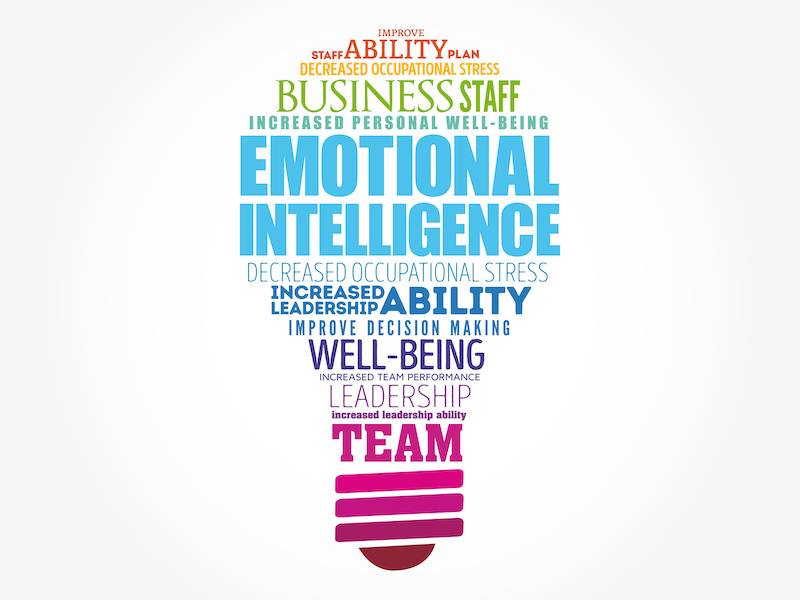Enhancing Emotional Intelligence for Better Business Relationships
Emotional intelligence (EI) plays a pivotal role in fostering effective communication, collaboration, and leadership within the business environment. As professionals navigate complex challenges and diverse personalities, developing strong emotional intelligence skills can significantly enhance their ability to build successful relationships, drive team performance, and achieve organizational objectives. Explore how enhancing emotional intelligence can positively impact business relationships and elevate your professional success.

1. Understand Emotional Intelligence (EI) Basics
Emotional intelligence encompasses the ability to recognize and manage emotions—both your own and others’—in a constructive and empathetic manner. It consists of several key components:
- Self-awareness: Recognizing your emotions and understanding their impact on your thoughts and behavior.
- Self-management: Effectively managing your emotions, impulses, and stress in challenging situations.
- Social awareness: Sensing and understanding others’ emotions, as well as empathizing with their perspectives.
- Relationship management: Building and maintaining positive relationships, communicating clearly, and resolving conflicts collaboratively.
2. Develop Self-awareness
Self-awareness forms the foundation of emotional intelligence. Take time to reflect on your emotions, triggers, and behavioral patterns. Identify strengths and areas for growth in managing your emotions and responding to situations effectively. Cultivating self-awareness enables you to make informed decisions, adapt to change, and project authenticity in your interactions with colleagues, clients, and stakeholders.
3. Practice Active Listening
Active listening is essential for enhancing social awareness and building rapport with others. Focus on fully understanding what others are saying without interrupting or formulating responses prematurely. Demonstrate empathy by acknowledging and validating their emotions and perspectives. Effective listening fosters trust, strengthens relationships, and promotes a collaborative work environment.
4. Manage Emotions Effectively
Effective self-management involves regulating your emotions and maintaining composure in challenging situations. Develop strategies such as deep breathing, mindfulness techniques, or taking a brief pause before responding to stressful or emotionally charged interactions. By managing your emotions constructively, you can make rational decisions, diffuse conflicts, and inspire confidence in your leadership abilities.
5. Cultivate Empathy and Social Awareness
Empathy is the ability to understand and share the feelings of others. Cultivate empathy by considering situations from different viewpoints and acknowledging the emotions of those around you. Social awareness goes beyond empathy to include sensing emotional cues, navigating social dynamics, and adapting your communication style to foster positive interactions. Enhancing these skills enables you to build trust, resolve conflicts, and collaborate effectively within diverse teams.
6. Build Strong Relationships
Relationship management is about nurturing positive relationships and leveraging them to achieve mutual goals. Communicate openly and transparently, seek feedback from others, and demonstrate respect for differing opinions. Invest time in networking, mentoring, and team-building activities to foster a supportive and inclusive work environment. Strong relationships contribute to employee engagement, retention, and organizational success.
7. Communicate Effectively
Clear and effective communication is a cornerstone of emotional intelligence. Tailor your communication style to suit the preferences and needs of your audience. Use active listening, non-verbal cues, and concise language to convey messages with clarity and empathy. Encourage open dialogue, address misunderstandings promptly, and solicit input from others to promote collaboration and alignment towards shared objectives.
8. Resolve Conflicts Collaboratively
Conflict is inevitable in any workplace setting. Approach conflicts as opportunities for growth and resolution rather than avoidance. Utilize your emotional intelligence skills to de-escalate tensions, listen actively to all parties involved, and seek mutually beneficial solutions. Foster a culture of respect and constructive feedback to mitigate conflicts and promote a positive work environment conducive to productivity and innovation.
9. Continuously Learn and Adapt
Emotional intelligence is a dynamic skill set that evolves with practice and experience. Embrace opportunities for self-improvement, such as workshops, coaching, or self-study, to further develop your emotional intelligence competencies. Stay curious, seek feedback from trusted mentors or colleagues, and apply lessons learned to enhance your interpersonal effectiveness and leadership capabilities.
10. Lead with Emotional Intelligence
As a leader, demonstrate emotional intelligence by setting a positive example, fostering a culture of empathy and collaboration, and empowering others to succeed. Inspire trust and loyalty through genuine connections, ethical decision-making, and a commitment to the well-being of your team. By leading with emotional intelligence, you can create a cohesive and high-performing organizational culture that drives innovation and sustainable business growth.
Final Thoughts
Emotional intelligence in business is a catalyst for building meaningful relationships, fostering collaboration, and achieving professional success. By enhancing your emotional intelligence skills, you can navigate complex business environments with confidence, empathy, and resilience. Embrace the journey of self-discovery and continuous improvement to unlock your full potential as a leader and positively impact your organization’s culture and performance.
Start integrating these strategies into your daily interactions and leadership approach to cultivate emotional intelligence and elevate your business relationships. Let’s embark on a path of emotional intelligence mastery together, creating a workplace where empathy, communication, and collaboration thrive.


